Ford Focus vs Peugeot 408 - Differences and prices compared
Compare performance (280 HP vs 225 HP), boot space and price (27500 £ vs 35100 £) at a glance. Find out which car is the better choice for you – Ford Focus or Peugeot 408?
Costs and Efficiency:
Looking at overall running costs, both models reveal some interesting differences in everyday economy.
Ford Focus has a clearly perceptible advantage in terms of price – it starts at 27500 £, while the Peugeot 408 costs 35100 £. That’s a price difference of around 7603 £.
Fuel consumption also shows a difference: Peugeot 408 manages with 2.70 L and is therefore clearly more efficient than the Ford Focus with 4.90 L. The difference is about 2.20 L per 100 km.
Engine and Performance:
Under the bonnet, it becomes clear which model is tuned for sportiness and which one takes the lead when you hit the accelerator.
When it comes to engine power, the Ford Focus has a to a small extent edge – offering 280 HP compared to 225 HP. That’s roughly 55 HP more horsepower.
In acceleration from 0 to 100 km/h, the Ford Focus is distinct quicker – completing the sprint in 5.70 s, while the Peugeot 408 takes 7.20 s. That’s about 1.50 s faster.
In terms of top speed, the Ford Focus performs hardly perceptible better – reaching 250 km/h, while the Peugeot 408 tops out at 233 km/h. The difference is around 17 km/h.
There’s also a difference in torque: Ford Focus pulls slightly stronger with 420 Nm compared to 360 Nm. That’s about 60 Nm difference.
Space and Everyday Use:
Whether family car or daily driver – which one offers more room, flexibility and comfort?
Both vehicles offer seating for 5 people.
In curb weight, Ford Focus is somewhat lighter – 1330 kg compared to 1544 kg. The difference is around 214 kg.
In terms of boot space, the Peugeot 408 offers clearly perceptible more room – 536 L compared to 392 L. That’s a difference of about 144 L.
In maximum load capacity, the Peugeot 408 performs to a small extent better – up to 1583 L, which is about 229 L more than the Ford Focus.
When it comes to payload, Ford Focus to a small extent takes the win – 560 kg compared to 456 kg. That’s a difference of about 104 kg.
Who wins the race?
The Peugeot 408 proves to be wins solidly and therefore becomes our DriveDuel Champion!
Peugeot 408 is the better all-rounder in this comparison.
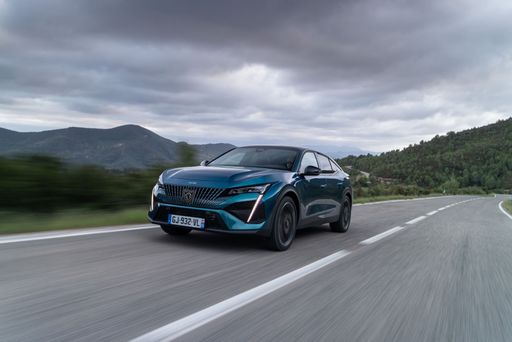
Peugeot 408
Costs and Consumption
View detailed analysis
Engine and Performance
View detailed analysis
Dimensions and Body
View detailed analysis
Ford Focus
The Ford Focus remains a clever all‑rounder that balances sharp handling with everyday comfort, making it a strong choice whether your commute is city streets or country lanes. Its practical cabin and sensible running costs mean you’ll spend more time enjoying the drive and less time worrying about ownership, with a playful streak underfoot that keeps things interesting.
details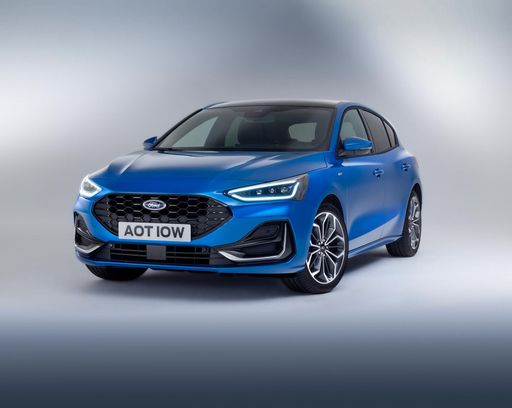
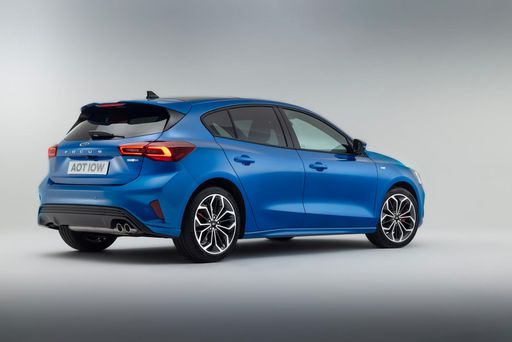
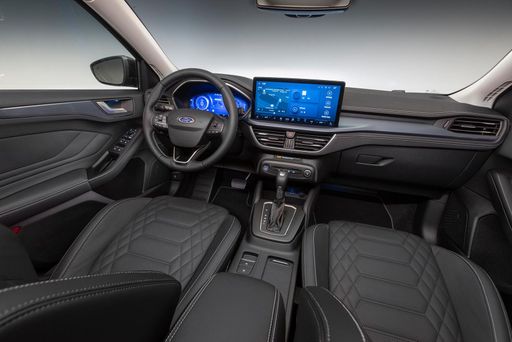
Peugeot 408
The Peugeot 408 blends a coupe-like roofline with practical sensibility, delivering striking looks and a surprisingly airy, premium-feeling cabin. On the road it prefers comfort and poise over manic thrills, making it a smart, stylish choice for buyers who want something a bit different from the usual family hatchback.
details
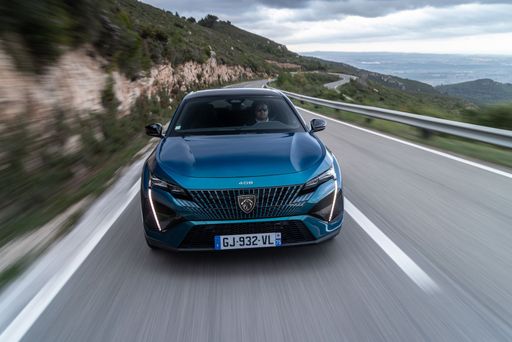
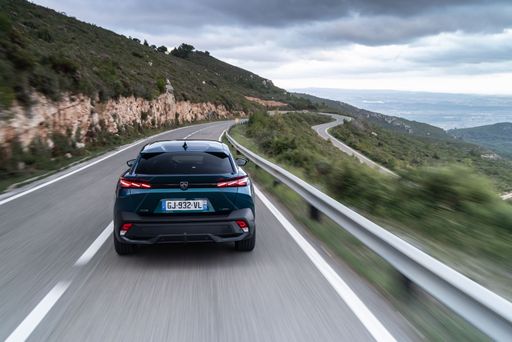
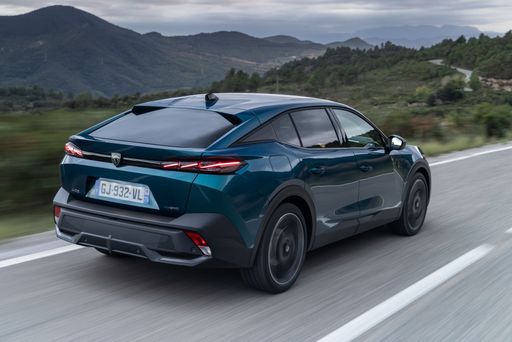
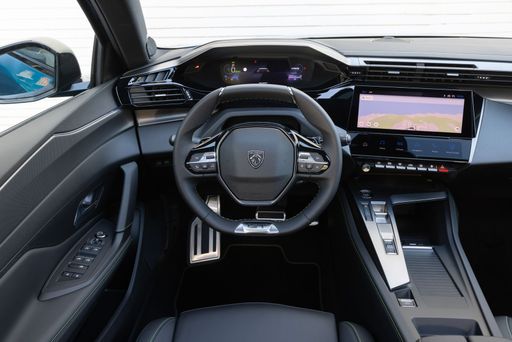

|

|
|
|
|
Costs and Consumption |
|
|---|---|
|
Price
27500 - 42700 £
|
Price
35100 - 48000 £
|
|
Consumption L/100km
4.9 - 8 L
|
Consumption L/100km
2.7 - 5.1 L
|
|
Consumption kWh/100km
-
|
Consumption kWh/100km
14.80 kWh
|
|
Electric Range
-
|
Electric Range
79 - 455 km
|
|
Battery Capacity
-
|
Battery Capacity
58.20 kWh
|
|
co2
117 - 183 g/km
|
co2
0 - 114 g/km
|
|
Fuel tank capacity
52 L
|
Fuel tank capacity
42 - 52 L
|
Dimensions and Body |
|
|---|---|
|
Body Type
Hatchback
|
Body Type
SUV
|
|
Seats
5
|
Seats
5
|
|
Doors
5
|
Doors
5
|
|
Curb weight
1330 - 1529 kg
|
Curb weight
1544 - 1879 kg
|
|
Trunk capacity
392 L
|
Trunk capacity
471 - 536 L
|
|
Length
4382 - 4397 mm
|
Length
4687 mm
|
|
Width
1825 - 1844 mm
|
Width
1848 mm
|
|
Height
1438 - 1482 mm
|
Height
1478 mm
|
|
Max trunk capacity
1354 L
|
Max trunk capacity
1528 - 1583 L
|
|
Payload
495 - 560 kg
|
Payload
371 - 456 kg
|
Engine and Performance |
|
|---|---|
|
Engine Type
Petrol MHEV, Diesel, Petrol
|
Engine Type
Electric, Petrol MHEV, Plugin Hybrid
|
|
Transmission
Manuel, Automatic
|
Transmission
Automatic
|
|
Transmission Detail
Manual Gearbox, Dual-Clutch Automatic, Automatic Gearbox
|
Transmission Detail
Reduction Gearbox, Dual-Clutch Automatic
|
|
Drive Type
Front-Wheel Drive
|
Drive Type
Front-Wheel Drive
|
|
Power HP
115 - 280 HP
|
Power HP
145 - 225 HP
|
|
Acceleration 0-100km/h
5.7 - 11.8 s
|
Acceleration 0-100km/h
7.2 - 9.4 s
|
|
Max Speed
186 - 250 km/h
|
Max Speed
160 - 233 km/h
|
|
Torque
170 - 420 Nm
|
Torque
230 - 360 Nm
|
|
Number of Cylinders
3 - 4
|
Number of Cylinders
4
|
|
Power kW
85 - 206 kW
|
Power kW
107 - 165 kW
|
|
Engine capacity
999 - 2261 cm3
|
Engine capacity
1199 - 1598 cm3
|
General |
|
|---|---|
|
Model Year
2022 - 2024
|
Model Year
2024 - 2025
|
|
CO2 Efficiency Class
D, G
|
CO2 Efficiency Class
A, C, B
|
|
Brand
Ford
|
Brand
Peugeot
|
What drive types are available for the Ford Focus?
Available configurations include Front-Wheel Drive.
The prices and data displayed are estimates based on German list prices and may vary by country. This information is not legally binding.
